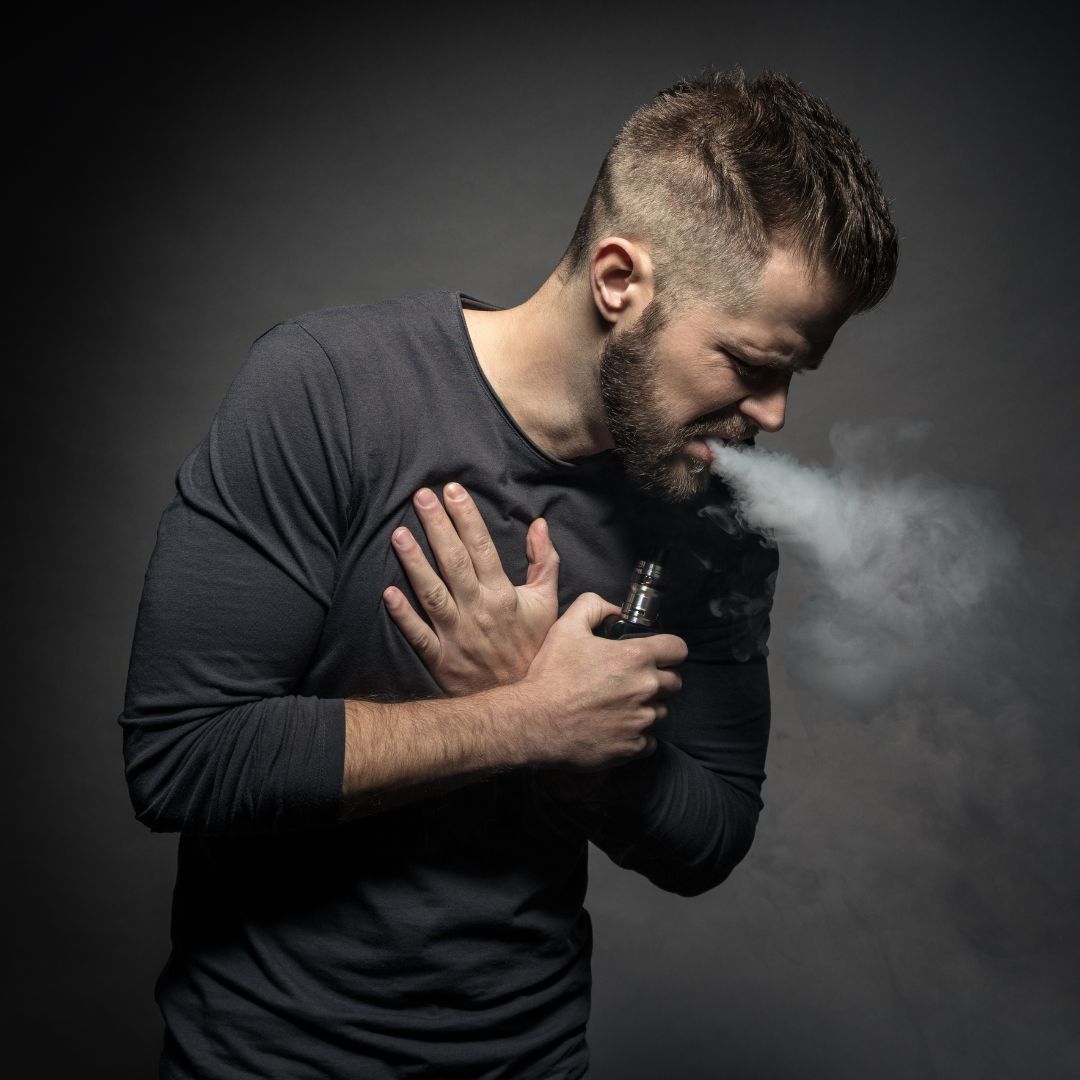by Taylor Morgan & Karen Sussman
Over the course of the last decade, technological developments have reinvented myriad industries, including the tobacco industry. The emergence of e-cigarettes and vaporizers, or vapes, came in the wake of six decades of medical studies that clearly proved how smoking nicotine is dangerous to your health and identified the specific chemicals that are so incredibly damaging to your body. The idea behind vapes was ostensibly to provide a safer alternative for smokers— to help wean them off nicotine, or to at least reduce the damaging effects that come from inhaling burning tobacco smoke directly.
However, e-liquid—or vape juice—comes in an endless variety of flavors that are dispensable in a more easily concealable and much less odorous package than the cigarettes of old, and have ended up making vape use very appealing in the long-term, not just to established smokers, but also to people who otherwise would never have considered lighting a cigarette in the first place. In short, vaping has made nicotine more accessible than ever—and more people, teens and adults alike, are vaping than ever before as a result. The amount of nicotine in an e-cigarette varies. A 20 mg/ml vape, with 40 mg of nicotine, is the equivalent of smoking one or two packs of 20 cigarettes.
While it’s said that vaping is safer than smoking a cigarette, the truth is that we do not yet have enough long-term scientific studies that show that vaping is significantly safer. But we already know that there are verified negative side effects that come from ingesting the vaporized e-liquid that coats the lung tissue with additives, such as vitamin E—often used as a thickening agent for vape juice, it is safe when properly ingested as a thoughtful part of a healthy diet, but can be an irritant when inhaled—as well as diacetyl, formaldehyde, and acrolein.
Singers and professional voice-users might be inclined to eschew cigarettes and give vaping a go in lieu of cigarettes, believing the “Safer Than Cigarettes” hype. But with the full effects of vaping not yet completely understood—and with significant evidence being negative—using vapes is a gamble with your health—vocal cords included. There doesn’t seem to be much argument in favor of inhaling burning toxic chemicals, whether you sing or not.
Obviously, harm reduction is an important measure to take. However, don’t be fooled into thinking vaping is a good, or safe, alternative to a cigarette. Anything that can severely impact the health of the lungs and vocal folds should be avoided. It is true that when you vape, you may not be taking in the same damaging chemicals as the ones found in traditional cigarettes, but vape juice additives may have negative effects not yet fully understood or studied, on top of the verified side effects already evident and presenting in current e-cigarette and vape users.
To begin with, the inhalation process itself irritates the throat and nasal passageways, leading to mucus buildup and coughing. That, along with excessive throat clearing, can damage the tissue of the vocal folds, on top of the irritation produced by the chemicals in the vape liquid. One of those chemicals, diacetyl, a food additive commonly found in microwave popcorn, can inflame and permanently scar the small airways in the respiratory system, resulting in bronchiolitis obliterans, or BO, more commonly known as Popcorn Lung. BO makes breathing difficult, can be progressive, and has no long-term cure. And since the rise in e-cigarettes, there has also been a sharp increase in collapsed lungs in younger people who vape.
Vaping nicotine and exposure to vape juice have the potential to cause other medical issues as well: cardiovascular, neurological, etc., including attention issues, cell and DNA damage, and it may even affect brain development in people under age 25.
Tobacco, and all nicotine products, are bad for your health, and should be avoided in all their forms. Marijuana is a genuine and legitimate treatment for many medical issues, but ingestion via vaporizer is dangerous. If you rely on marijuana for a medical issue of your own, consider alternative, safer methods of ingestion, such as topical or edible products.
Living your best life in optimal health is the goal for all of our clients here at Professional Voice Care Center, and thus far, the evidence suggests that in the long run, vaping—even if it’s marijuana—is damaging to your health, particularly to the lungs and throat. If you aim to maintain your vocal health for years to come, remain vigilant in avoiding the normalization of vaping.






